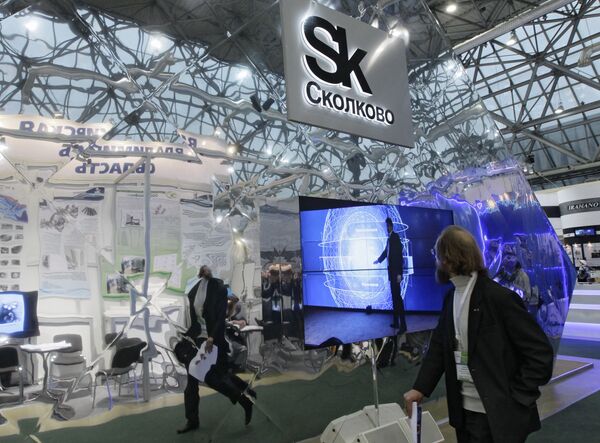Russia’s multibillion effort to foster innovation has yielded ‘disappointing’ results so far, according to a new study by high-profile Russian and international experts.
Although it is still to early to see groundbreaking results, certain structural issues, especially the government’s near-total control of the innovative industry, needs to be tackled, if the industry is to get off the ground, the team’s representative, Patricia Freitas of Brazilian innovation agency FINEP, said late Thursday.
The study covered Russia’s six main innovation programs, including those run by the Skolkovo Foundation and the Rusnano corporation. All are state-controlled.
The study noted the focus and intensity with which the programs are run, and Freitas said that Russia performed well on innovative input, including R&D spending and the number of PhDs defended in the country.
Rusnano’s spending since its 2007 inception stands at 200 billion rubles ($6.4 billion), with private investors contributing another 300 billion rubles to a variety of nanotech-based projects, company head Anatoly Chubais said.
The Bortnik Foundation – which focuses on seed funding – has attracted 75,000 participants for its Umnik (“Egg Head”) program since 2007, according to the head of the foundation, Sergei Polyakov.
But this has failed to translate into output, and new venture activity remained low, the study suggests.
Chubais shared more positive figures: sales by factories created by his firm Rusnano are expected to stand at 20 billion to 25 billion rubles ($640 million to $800 million) this year, up from 1 billion rubles in 2010.
Obstacles include convoluted legislation, insufficient transparency and undeveloped support structure, which translates into a lack of private investors, Freitas said.
Other BRICS members have managed to set up innovative clusters despite problems with governmental transparency and corruption, Freitas noted.
But the study highlighted the fact that this in no way relieves the Russian government of the need to streamline innovation-related regulations. The state also needs to “develop a culture that encourages entrepreneurship” and gradually hand over the job of supporting innovative startups to private venture funds, Freitas stressed.
Russia was ranked 120th out of 183 economies in the Doing Business 2012 rating by the World Bank. One Skolkovo resident said that their company has to file kilograms of paperwork every year.
“I can’t say that Russian businessmen have begun to trust it,” Chubais said about the government’s innovation drive.
“But there’s nothing wrong with that. Nothing happens fast in this area,” he said. “We need to continue.”


